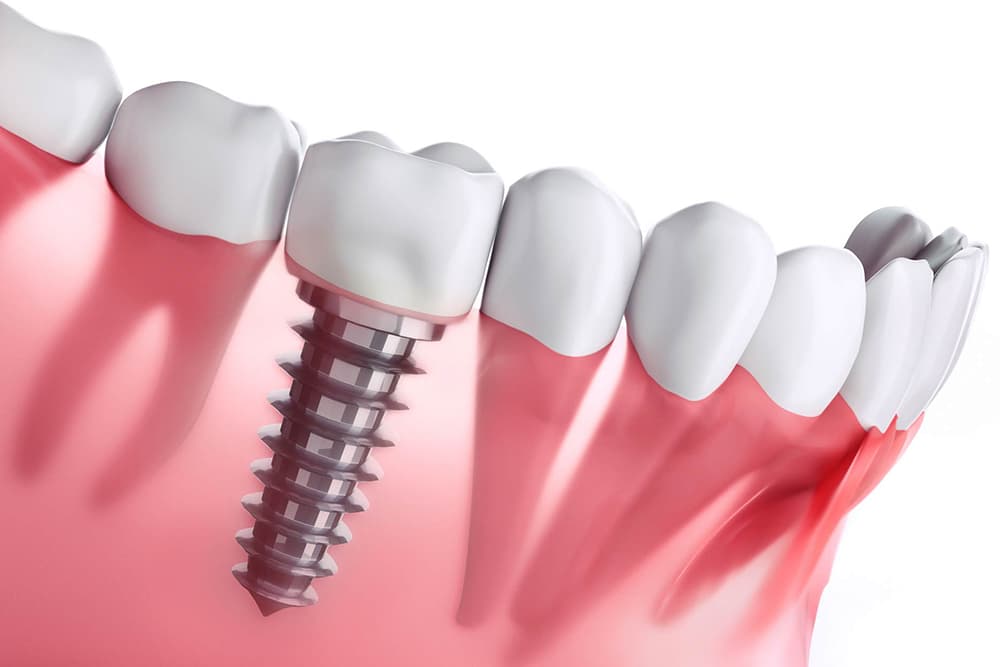
What’s an implant?
Dental implants* are a fixed solution to missing teeth. The
finished result is natural and long-lasting, and feels just
like a normal tooth. While there are other procedures to
replace missing teeth, dental implants can create a smile
that is very natural and extremely durable. It’s almost
impossible to distinguish the implant from your existing
teeth.
An implant is a manufactured replacement for the root of a
tooth. Usually made of titanium and looking a little like a
screw, the implant is surgically positioned in the jaw bone.
A crown is then attached to the top of the implant to fill
the gap of the missing tooth.
How is an implant fitted?
A series of scans are taken by your dentist to aid in
positioning the implant and to ensure you have plenty of
healthy bone structure. If the bone is diseased or missing,
there is still a possibility of a bone graft in order to
make an implant viable.
The titanium implant is surgically placed in the bone of
your jaw where a tooth once was. It is then left for between
two and six months so the bone can grow around the implant.
During this time you may wear a temporary crown.
Once the implant is securely fused to the bone, the
temporary crown is removed and a permanent crown is either
cemented or screwed into place.
If you are missing all of your teeth and wear a full
denture, it is still possible to use dental implants to
restore your smile. A full arch of natural-looking teeth can
be held in place on as little as four implants. These fit
snugly to help make it feel comfortable and eliminate the
need for daily removal and cleaning.



What are the advantages of an implant?
Implants create the most natural and life-like solution to a
missing tooth. The result is virtually indistinguishable
from your other teeth and in a very short space of time; it
will likely feel completely.
Other solutions for replacing missing teeth – either a
bridge or dentures – are not as long-lasting or
natural-looking. Implants allow you to eat, speak and
maintain an oral health regimen as if you had never lost a
tooth in the first place.
Am I a suitable candidate for implants?
The only requirement to have a dental implant fitted is that
you are in good health, possess a healthy jawbone and have
no gum disease. The success rate of dental implants is very
high.
A factor that can impact on the success of the procedure is
the presence of gum disease or tooth decay. These need to be
fully treated before even thinking about implants. Smoking
needs to be stopped well before treatment and ideally after
the implants are fitted. Smoking reduces healing capacity
and can cause complications at the integration point of the
implant, not to mention its other effects on general
health.
Some medical conditions and the medication required to treat
them can also have an adverse effect on implants. These
include diabetes, cancer and gastric reflux. It’s important
to fully discuss your medical history with your dentist in
the planning stages of the implant procedure.
Maintaining dental implants
One of the biggest advantages of dental implants is that
they require no special after-care; simply brush, floss and
visit your dentist as normal. Good oral hygiene, healthy
gums and a twice yearly check-up are your implant’s best
friends.
How long do implants last?
With proper oral hygiene, you can expect dental implants to last around 20 years. However, it’s entirely possible for them to last a lifetime.

